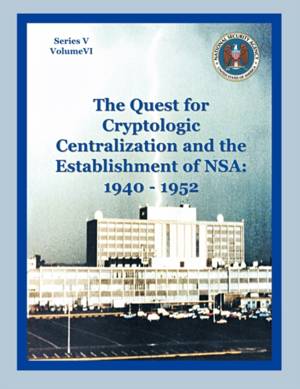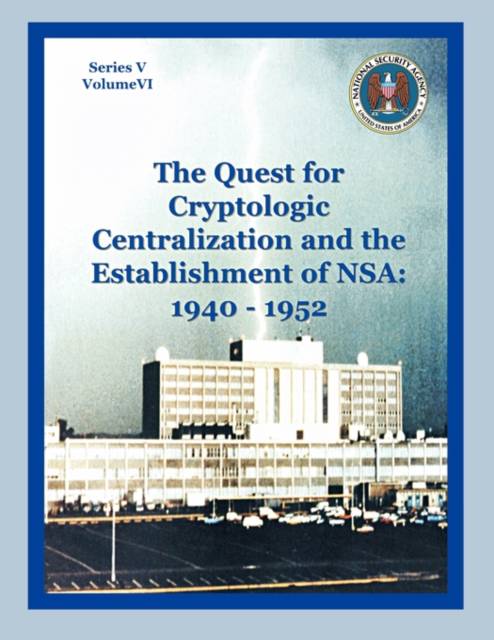
Bedankt voor het vertrouwen het afgelopen jaar! Om jou te bedanken bieden we GRATIS verzending (in België) aan op alles gedurende de hele maand januari.
- Afhalen na 1 uur in een winkel met voorraad
- In januari gratis thuislevering in België
- Ruim aanbod met 7 miljoen producten
Bedankt voor het vertrouwen het afgelopen jaar! Om jou te bedanken bieden we GRATIS verzending (in België) aan op alles gedurende de hele maand januari.
- Afhalen na 1 uur in een winkel met voorraad
- In januari gratis thuislevering in België
- Ruim aanbod met 7 miljoen producten
Zoeken
The Quest for Cryptological Centralization and the Establishment of NSA
1940-1952
Thomas L Burns, Center for Cryptologic History
Paperback | Engels
€ 16,95
+ 33 punten
Omschrijving
The position of the National Security Agency (NSA) as the centralized communications intelligence (COMINT) agency for the U.S. government is so well-established that it is difficult to grasp the scope of the lengthy post-World War II debate over a centralized versus decentralized U.S. COMINT capability. Only after the appointment of a presidential commission by President Truman and its subsequent report (the Brownell Report) was the managerial foundation of what was to become the NSA put in place. "The Quest for Cryptological Centralization and the Establishment of NSA: 1940-1952" documents the origins of NSA. It attempts to explain "what happened regarding the issues and conflicts that led Truman to establish a centralized COMINT agency by tracing the evolution of the various military COMINT organizations from the 1930s to NSA's establishment in 1952. This study highlights the main events, policies, and leaders of the early post-war years, with emphasis on the jurisdictional struggles between military and civilian authorities over the control and direction of American COMINT resources. Moving chronologically from the pre-war and war years through the 1946-1949 period, which marked the passage of the National Security Act of 1947 and the beginning of high-level efforts to centralize U.S. intelligence responsibilities, "The Quest for Cryptological Centralization and the Establishment of NSA" then focuses on the Brownell Committee and its deliberations, and concludes with an overall review of COMINT organizational changes and a suggestion that the struggle may not be over even today. Historians and intelligence professionals alike will find important insights into the politics of COMINT in the post-war world and the implications they hold for intelligence organizations today.
Specificaties
Betrokkenen
- Auteur(s):
- Uitgeverij:
Inhoud
- Aantal bladzijden:
- 140
- Taal:
- Engels
Eigenschappen
- Productcode (EAN):
- 9781780390338
- Verschijningsdatum:
- 1/01/2011
- Uitvoering:
- Paperback
- Formaat:
- Trade paperback (VS)
- Afmetingen:
- 213 mm x 277 mm
- Gewicht:
- 340 g

Alleen bij Standaard Boekhandel
+ 33 punten op je klantenkaart van Standaard Boekhandel
Beoordelingen
We publiceren alleen reviews die voldoen aan de voorwaarden voor reviews. Bekijk onze voorwaarden voor reviews.









